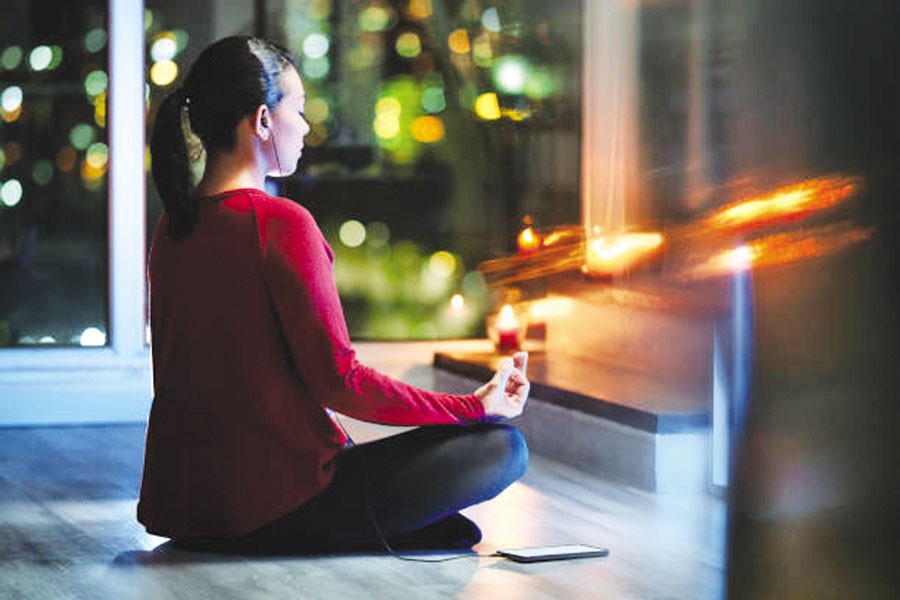Who would have thought the fantasy of many students attending lectures under a warm blanket would come true? For the majority part of the year, a lot of people spent their time coping with watching the cheerful faces of classmates or colleagues limited to Zoom rectangles true normalcy seemed way further in distant vision. Such stress and anxiety can be taken care of by meditation apps to help people achieve a semblance of tranquility for troubled minds. One such example of these apps is 'Headspace'.  Headspace and other similar apps provide a wealth of resources for those who struggle to let go of worry and stress. There are three-minute meditations for the commute home, Thursday evenings before you begin your weekend, tea breaks in the middle of your workday, dealing with loss, pain and of course, breakups. They have soothing graphics that can help you deal with even the most persistent anxiety; clouds with unusual shapes, adorable small brain graphics, ocean waves, and more. Sometimes clutching all of these with the desperation of a drowning man by paying a not-so insubstantial annual subscription fee, you could see it as an investment in you, for the most essential part of your life -- your mental health.
Headspace and other similar apps provide a wealth of resources for those who struggle to let go of worry and stress. There are three-minute meditations for the commute home, Thursday evenings before you begin your weekend, tea breaks in the middle of your workday, dealing with loss, pain and of course, breakups. They have soothing graphics that can help you deal with even the most persistent anxiety; clouds with unusual shapes, adorable small brain graphics, ocean waves, and more. Sometimes clutching all of these with the desperation of a drowning man by paying a not-so insubstantial annual subscription fee, you could see it as an investment in you, for the most essential part of your life -- your mental health.
Pritom Das, a psychologist from MindTale- a mental health service, emphasises the importance of practising meditation or mindfulness in order to enhance decision-making ability or the mental health attributes to lead a health-conscious life. According to him, even though meditation-based apps like Headspace may be helpful to boost focus or attention span, it is not the sole solution out there. People can practice mindfulness through different ways like seeking guidance from books or experts.
Studies have found that such meditation practices may be associated with negative medical and mental health impacts, such as anxiety and depression. You may gradually realise that your mental health needs to be nurtured by you. It is important to note that these are simply tools in your arsenal for staying sane. Most importantly, such apps should never be considered or used in place of competent therapy. They may be useful, but they will never be able to replace a therapist. The key may simply be to identify several different healthy outlets that can serve as support harnesses and return to them on a regular basis. Music, journaling, yoga and reading can all be just as effective as long as we remember that we are the most powerful tool of all.
Pritom, however, brings an important point mentioning how mindfulness can be practised through the spectrum of simple yet focus span boosting activities -- ranging from noticing own breathing patterns to just observing the surroundings. This can be helpful to train one's brain to remain present and boost the capability of attention span.
What such apps allow someone to do is sit with themselves for a while. Simply sit and listen to inner monologues. Take a look around and notice how your body is resting. Listen to yourselves so that your mind does not have to scream for being unheard. However, it may be beneficial not to rely on an app all of the time. Consider those moments of slippery anxiety, that crushing blow when something you desire slips away. It is all right. You still exist amidst the vastness of the universe. You should feel both pain and joy of living as one of the famous comfort authors Matt Haig emphasised, "You've felt other things before and you'll feel other things again."
The writer is a student at the Department of International Relations at Bangladesh University of Professionals.
[email protected]


